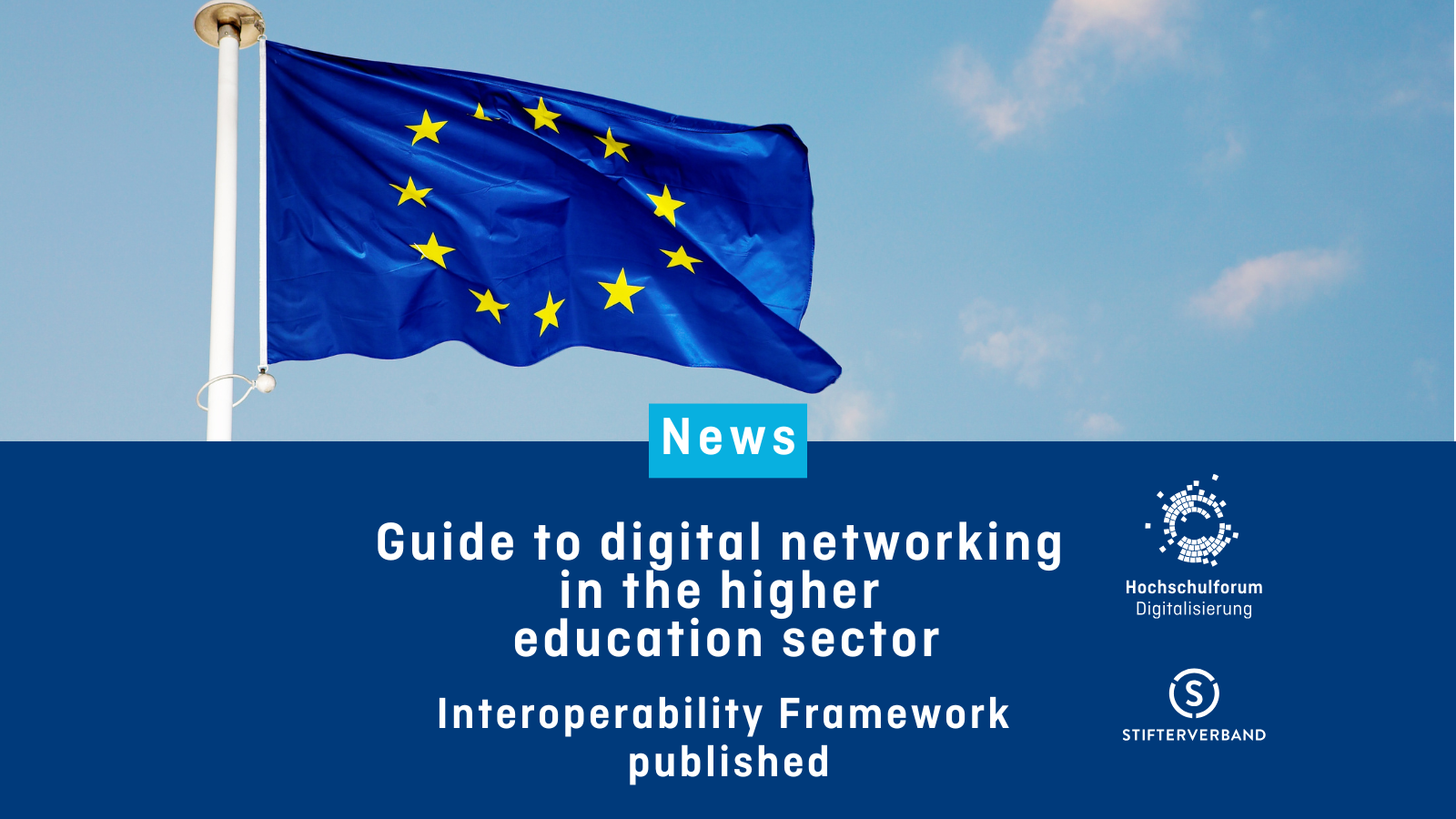Guide to digital networking in the higher education sector: Interoperability Framework published
Guide to digital networking in the higher education sector: Interoperability Framework published
16.06.25
The new European Interoperability Framework for Higher Education (HEIF) is an important step towards strengthening digital collaboration and mobility in higher education. It offers practical solutions for universities and is a call for further engagement with the topic.
Systematic objectives of the framework
The framework is a significant step in the drive to digitally transform European higher education. The overarching goal is to create a more connected, efficient and learner-centered higher education system in Europe. This is to be achieved by enabling seamless digital data exchange and collaboration between universities. Through the standardization of processes and digital interfaces, administrative hurdles in the exchange of data (e.g. certificates, academic achievements) are to be massively reduced.
In addition, the portability of certificates and academic achievements is to be considerably simplified, which would promote the cross-border mobility of students and teachers and improve the automatic recognition of academic achievements. This is particularly relevant for German universities wishing to expand international cooperation. The aim is to enable universities to develop interoperable digital ecosystems and shared virtual campuses. The introduction of common standards is a key priority to ensure clarity and consistency in data exchange.
Interoperability and digital collaboration are not just “technical” topics, but central building blocks for the strategic development of universities, which the HFD promotes. The HEIF provides German universities in European university alliances with concrete tools to facilitate cooperation and mobility within alliances. The results of the HEIF can be linked to the practical challenges faced by German universities in setting up digital infrastructures and implementing digitalization strategies.
The framework was developed by a group of experts within the European Digital Education Hub developed. The European Digital Education Hub is part of the EU Digital Education Action Plan and is funded by the Erasmus+ program. It serves as a central platform for stakeholders from all education sectors across Europe to exchange ideas on digital education, collaborate and develop joint projects. The aim is to improve digital education in Europe as a whole. The Stifterverband is one of a total of ten consortium partners from various education and technology sectors that are building and maintaining the practice-oriented network for digital education.
More on the topic:

Towards an Interoperable Higher Education Landscape
Contact
 Channa van der Brug
Channa van der Brug

